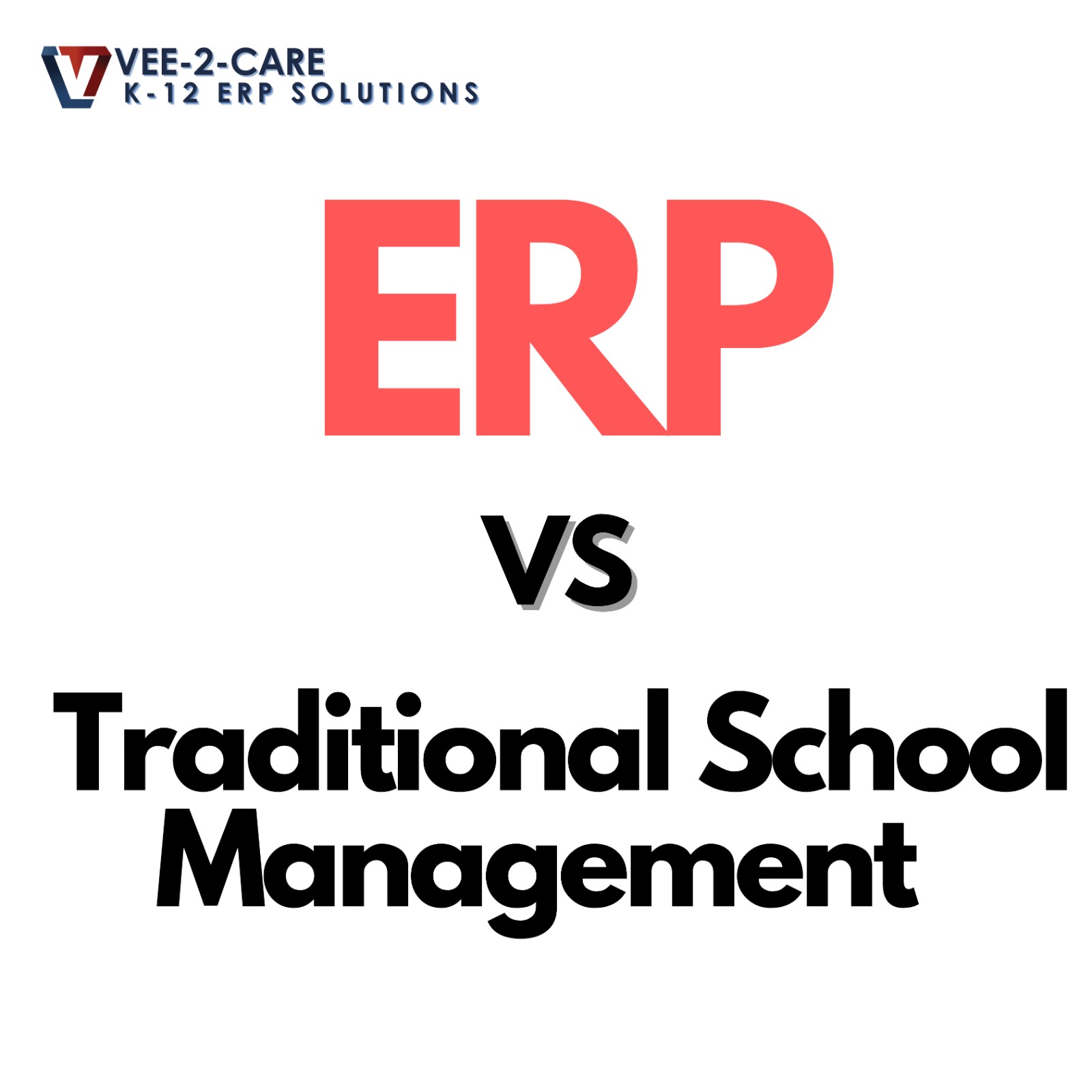ERP vs Traditional School Management: Which is More Efficient?
In the rapidly evolving education sector, schools are constantly looking for ways to enhance productivity and efficiency in managing their operations. Traditional school management methods have long been the standard, but Enterprise Resource Planning (ERP) systems are revolutionizing the way educational institutions operate. Let’s explore the differences between ERP and traditional school management and determine which is more efficient.
What is Traditional School Management?
Traditional school management involves manual processes and paper-based record keeping for tasks such as attendance tracking, fee collection, exam scheduling, and communication with parents. While this approach has served schools for decades, it is often time-consuming, prone to errors, and inefficient in managing the growing complexities of modern-day education.
Key Challenges of Traditional School Management:
- Time-Consuming Processes: Teachers and administrative staff spend significant time on manual tasks like attendance and report generation.
- Lack of Centralization: Data is often scattered across multiple records, making retrieval and analysis difficult.
- Human Errors: Manual data entry increases the likelihood of errors, leading to inefficiencies.
- Limited Communication: Communication between parents, teachers, and administrators is often slow and fragmented.
What is an ERP System for Schools?
An ERP system is a software solution that integrates all aspects of school management into a single platform. It automates routine tasks, centralizes data, and provides real-time insights to streamline operations. From attendance and fee management to parent-teacher communication, ERP systems simplify the complexities of school management.
Key Features of School ERP Systems:
- Automated attendance tracking
- Online fee collection and management
- Exam scheduling and report generation
- Centralized student and staff records
- Real-time communication tools for parents and teachers
- Integration with school bus tracking systems
ERP vs Traditional Management: A Comparison
Aspect | Traditional Management | ERP System |
Efficiency | Manual processes slow down operations | Automation speeds up tasks |
Data Management | Scattered, hard to retrieve | Centralized and easily accessible |
Error Rate | High due to manual data entry | Minimal due to automation |
Scalability | Limited | Highly scalable |
Cost-Effectiveness | Hidden costs in time and resources | Long-term savings despite initial investment |
Communication | Slow and fragmented | Real-time and seamless |
Customization | Not adaptable to changing needs | Flexible and customizable
|
Benefits of Implementing an ERP System
- Streamlined Operations: Automates repetitive tasks, saving time for staff and teachers.
- Improved Accuracy: Reduces human errors in attendance, fee collection, and reporting.
- Enhanced Communication: Provides instant updates to parents through mobile apps or portals.
- Cost Savings: Reduces the need for physical resources like paper and cuts administrative costs.
- Better Decision-Making: Real-time data and analytics help administrators make informed decisions.
Conclusion: ERP Systems Are the Future
While traditional school management methods have their place in history, they are no longer sufficient to handle the complexities of modern education. ERP systems offer a more efficient, accurate, and scalable solution for schools. By automating routine tasks and providing real-time insights, ERP systems empower educational institutions to focus on their core mission—delivering quality education.
Switching to an ERP system might seem like a significant investment initially, but the long-term benefits far outweigh the costs. Embrace the future of school management with ERP systems and unlock the potential for efficiency and growth in your institution.
Quick Info: Titles Covered
- School ERP vs Traditional Management
- Benefits of School ERP Software
- Efficient School Management Systems
- Traditional School Management Challenges
- Best ERP Systems for Schools
- School Management Software Advantages
- Digital Transformation in Education
- How ERP Improves School Efficiency
